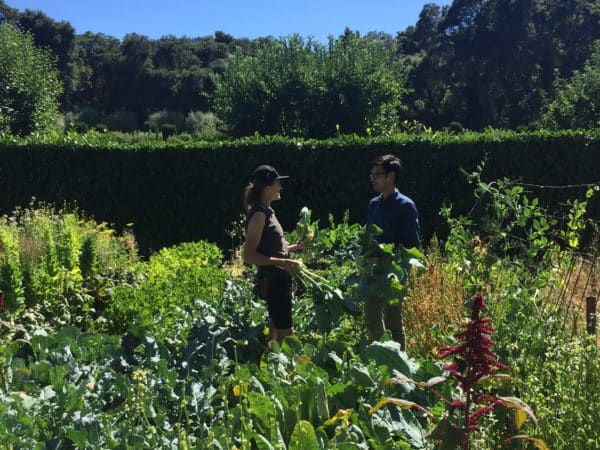Starting Your Victory Garden

This blog is the second installment of our Filoli “Gardening for Victory” series, which offers tips, tricks, and encouragement to all you aspiring home gardeners. Today, we’ve got some advice about how to get your own Victory Garden started!

You’ve Decided to Start a Victory Garden- Congratulations!
Is this your first time growing food at home? Maybe you grew up helping a family member in their garden? Perhaps you used to grow some things but got a little too busy for it? Even though we grow fruits, veggies, herbs, and cut flowers at Filoli year after year, we are always learning something new.
You can visit Filoli and walk through the Kitchen Garden, Cut Flower Garden, and Orchard to get ideas. Whatever your level of experience, just by tending your plot or pots, you will become a better grower this season – your crops will be your reward.

Now what to grow?
Growing plants from seed opens up unlimited possibilities of different heirlooms and new varieties. Your local nursery will have a wider selection of vegetable plant starts and fruit trees than you will find to eat at the grocery store. Filoli’s Clock Tower Shop is stocking a selection of herbs and veggies grown locally by Emerisa Gardens as well as seeds from Kitazawa Seed Co. and Renee’s Garden. But how to choose? Here are a few considerations to help guide you:
What is in season?
In mild Central California you’ll be able to grow many plants year around but paying attention to the seasons will be a key to your success. If you try to grow a cool season crop like broccoli for example when the weather is heating up, your plants will “bolt” and flower quickly rather than make nice broccoli heads. Early summer is the best time to plant basil, cilantro, beans, squash, tomatoes, and peppers as well as sunflowers and other summer flowers.
What do you have the space for?

If your growing space is limited, you won’t be harvesting your own crop of sweet corn but you still have plenty of worthwhile options. Many vegetable and fruit cultivars are now available that are bred specifically for growing in pots. Read plant tags and seed catalogs and look for small sizes or “container,” “patio,” “dwarf,” or “bush,” in the description. Just growing a selection of fresh herbs and edible flowers will both decorate your outdoor space and improve your meals in a small footprint.
What do you like to eat?
Plants require care. You’ll be more motivated to water or trellis or harvest the ones that you most enjoy eating. If you always order that grilled Shishito peppers appetizer, then grow Shishito peppers. Don’t be intimidated and settle for lettuce if you’re not big on salads. Many a Filoli Horticulture Department lunch break has been spent arguing about which veggie varieties are best and worst – you are free to follow your preference.
What is something new to you?
And to contradict my previous advice, why not branch out? Growing your own might introduce you to your next favorite food. You may even find some of the vegetables that you think you hate are pretty good when they are fresh. (Speaking from experience here – pickled beets, canned artichokes, boiled zucchini – I could go on.) We’ve all been encountering shortages and you may not be able to find some of the plants or seeds on your wishlist. Be adventurous and try something new.

Dive in.
“Victory” gardening may sound daunting but it is not a sport or a competition. Even the most experienced growers still have crop failures and that is to be expected. You don’t need any fancy equipment. Even if you’re a rookie, you can pick up the basics quickly. Over time you may find you enjoy planning your crop rotations and obsessing over the details but none of that is necessary to get started. The best way to learn to grow food is by doing it. Just pick something to grow and victory will be yours!
